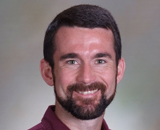 “When life gives you lemons, make lemonade” goes the saying.
“When life gives you lemons, make lemonade” goes the saying.
Recently I was bemoaning with a physician friend the ease with which learners often default to “expert” interpretation for imaging, rather than relying on or trusting their one x-ray interpretation in light of clinical judgment. As we shared back and forth our stories of radiologist misinterpretation (absent the full clinical context), we both reflected on the value of learning to practise in resource limited settings without the fancy tools and specialist back-up we have in everyday, “modern” practices (at least in the “developed” world).
That conversation came back (to haunt me, in a way) today as we muddled through a day of clinic with no computers, no testing, and no labs—due to an outage thanks to the local power company. Evaluating a patient with exertional dyspnea, I found myself thinking, “If only I could do an ECG, if only I could draw labs, if only I could run spirometry.” If only I had stopped to think, sooner, about good clinical medicine.
As I thought through what light those longed for tests really might or might not shed on my patient’s case, I came back again to thinking critically about what information I could gain from a more thorough history and careful examination. After arriving at a working diagnosis of exercise induced asthma and a workable plan for the next two weeks, I sent my patient on his way with a prescription and sat down myself to reflect on how easy it was for me to jump good medicine, to reliance on modern crutches.
Today’s power outage was certainly worth quite a few lemons. I’d really have preferred to have clinic up and fully functional like usual. Still, out of a lemon of a day, the “lemonade” was actually a bit refreshing. There was the reminder to myself to attend to the basics of good, sound primary care history-and-physical-exam-based medicine, and perhaps more important was the realization I should not be so haughty in criticizing the ease with which others turn to technology and specialists, when the same tendency comes just as easily to me.
Lemonade, anyone?
Declaration of interests: “I declare that that I have read and understood the BMJ Group policy on declaration of interests and I have no relevant interests to declare.”
William E Cayley Jr practises at the Augusta Family Medicine Clinic, teaches at the Eau Claire Family Medicine Residency, and is a professor at the University of Wisconsin, Department of Family Medicine.
